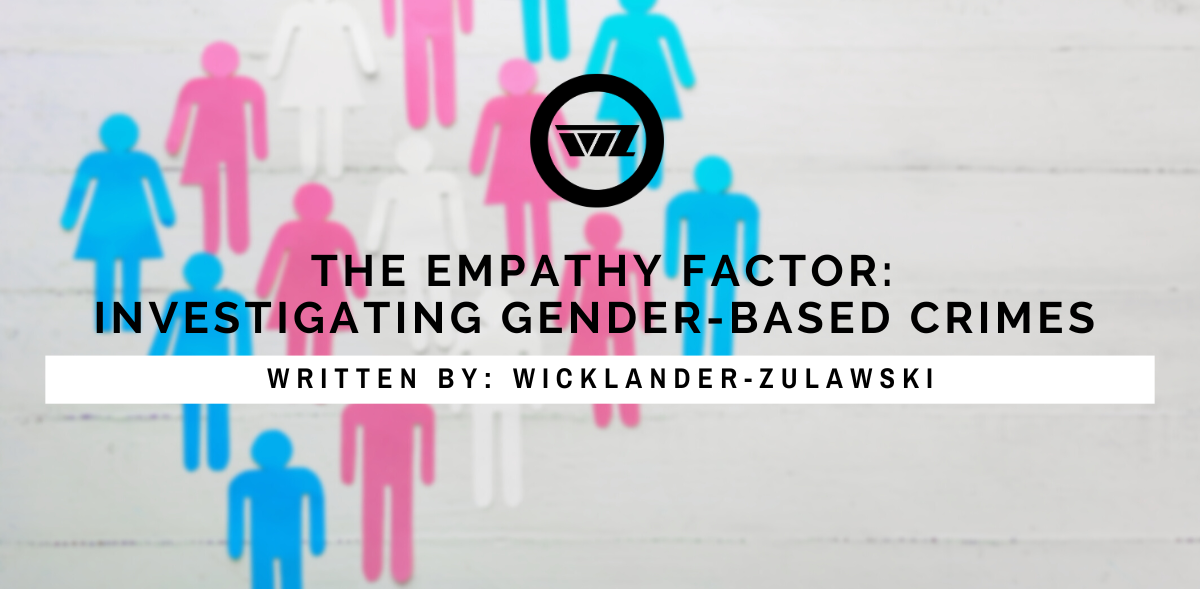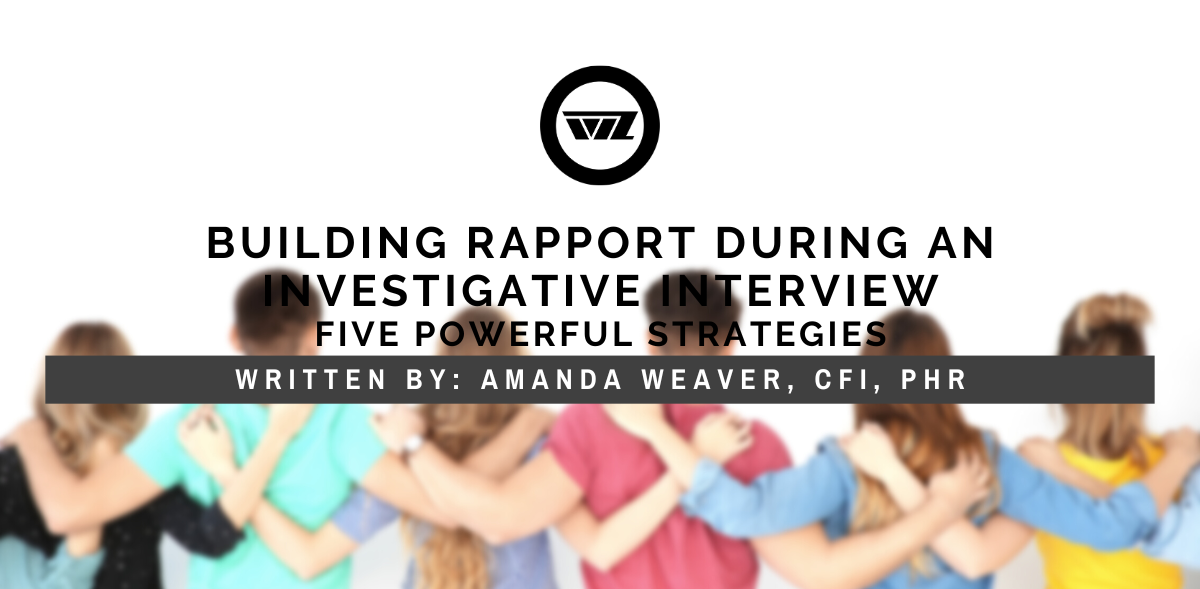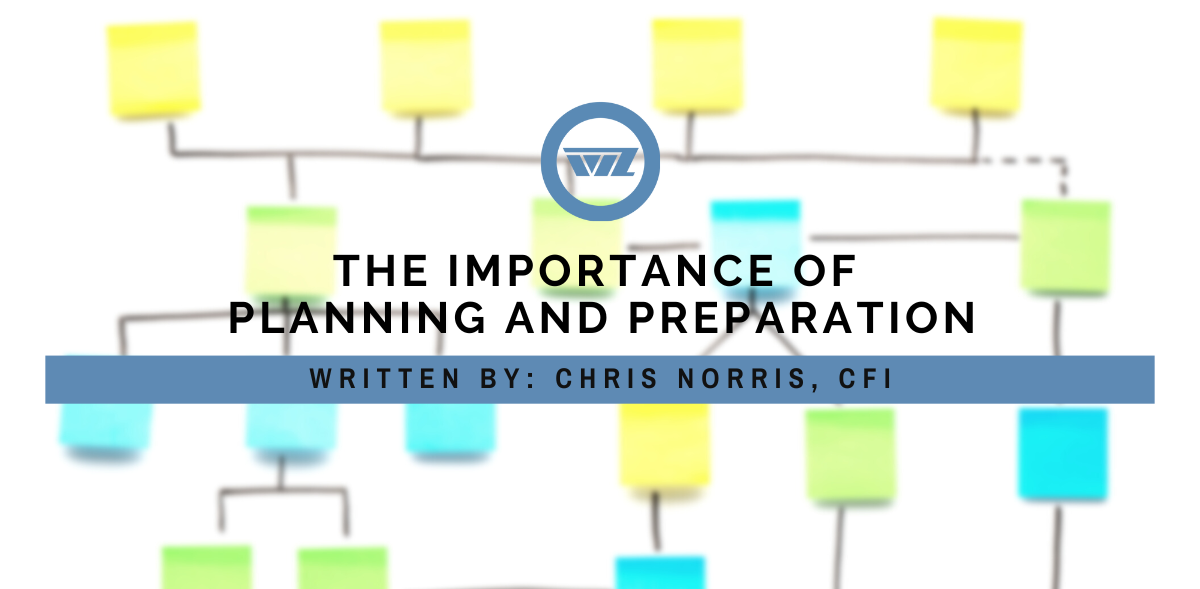Interviewers across all sectors often encounter traumatized individuals when conducting investigations. Police and public sector investigators deal with crime victims and their families. Private sector investigators may need to gather information from survivors of workplace violence or harassment. HR professionals will be talking to people dealing with traumatic events in their lives such as loss of a loved one, catastrophic accidents or debilitating illnesses. Any of the above scenarios may leave the individual who experienced them traumatized.
As interviewers, our goal is to gather all the available information about a particular incident. We focus on who, what, when, where, why and how. This focus is inherently logical and rational. The problem is, for survivors of traumatic incidents, logic and rationality don’t always apply due to the effect of trauma on the brain. Often in these cases, the survivor will demonstrate the hallmarks we have been taught to look for as signs of deception, such as the inability to deliver a coherent narrative, lack of consistency in recounting an event and remembering vital details at a later date. It is vital for interviewers to understand the effect of trauma on the brain and adjust their interviewing style accordingly: the trauma survivor’s impression of the interviewer will affect not only their participation in the investigation, but also their ability to recover from the trauma.
When a person is traumatized, the brain takes self-protective measures. The amygdala (the emotional reaction center of the brain) releases hormones that increase stress and energy levels (adrenaline and cortisol) as well as hormones that dull physical and emotional pain (opioids and oxytocin). The hormones flood the prefrontal cortex (the rational thought center of the brain) which leads to the traumatized individual acting on the fight/flight/freeze instinct. The brain takes this action so our minds can handle the overwhelming stress we may be facing, but this hormone release has further implications. This hormone flood also affects the structures in the brain that form memory: so when the trauma survivor recalls an event, they remember sensory and emotional fragments because those structures don’t put the sensory and emotional imagery together in the same way as the non-traumatized brain. Trauma survivors don’t remember it in a logical, sequential manner; they remember sensory and emotional fragments. When asked what happened, the trauma survivor often won’t be able to answer who, what, when, where, why and how because that requires the brain to engage the prefrontal cortex, which was overloaded at the time of the trauma. Therefore we can’t treat trauma survivors as witnesses to their own trauma. Rather, they experienced the trauma, so we should ask sensory and emotional, or experiential questions.
Trauma often causes a loss of control and power for the trauma survivor, so interviews should focus on empowering the interviewee. We as interviewers should be empathetic, and above all, patient. This type of investigation requires taking your time, not trying to rush. The best practice is for the trauma survivor to have at least two full sleep cycles prior to an in-depth interview. Questions and statements should be prefaced with a request for permission: “Can I ask you…” or “Can I tell you…” This manner of communicating empowers the trauma survivor by giving them choices. Questions should also be open-ended, and should let the trauma survivor take the lead in the conversation. Start with a question like “Can I ask you what you are ABLE to remember about the incident?” And, since the traumatized brain remembers events in sensory fragments, sensory-based questions act as brain-based cues when trying to access memories. “Can I ask what you are ABLE to remember about what you saw… heard… smelled… tasted… felt…” The traumatized brain may also focus in on certain details more than others. This focus may prove frustrating for the interviewer as sometimes they may seem to be unimportant, like a noise or an odor. However, rather than steering away from the seemingly insignificant detail, we should lean into it. Ask the trauma survivor to tell you more about the detail. Often, getting the survivor to focus on details they deemed important can build a bigger picture regarding the overall incident. Interviewers should be prepared to hear whatever the survivor has to say and for the interview process to take time for a full picture of an incident to emerge, as these memories are often difficult to access and sometime take time to emerge and are often remembered days, weeks or months later.
Interviewing traumatized individuals is difficult. We can’t just ask our questions and expect to get an easily understood narrative. When we are interviewing trauma survivors, the basic techniques described above have two main goals: to get the best information from a survivor, and minimizing re-traumatization during the investigative process. Memory is greatly affected by trauma, so we as interviewers need to acknowledge that by focusing on the overall experience rather than specific details. Being open-minded, taking our time and focusing on the needs of the trauma survivor will greatly enhance our ability to get a good, informative interview and mitigate the effects of trauma on the survivor.
Additional Resources:
[Media Co-op]. (2015, Sep. 21). Trauma and the Brain [Video File] Retrieved from https://www.youtube.com/watch?v=4-tcKYx24aA
Levine, P. (2015). Trauma and Memory: Brain and Body in a Search for the Living Past. Berkeley, CA: North Atlantic Books.
Van Der Kolk, B. (2014). The Body Keeps the Score: Brain, Mind, and Body in the Healing of Trauma. New York, NY: Penguin Books.
Bryan Barlow, CFI, joined the Chicago Police Department in 2002 and was promoted to Detective in 2008, where he conducted a wide variety of investigations around the city. Currently, Barlow serves as a training coordinator and instructor for the CPD’s Bureau of Detectives, where he has researched, written curriculum and delivered training to new officers, newly promoted detectives and in-service department members on investigatory topics such as Interviewing Victims and Witnesses, Interrogation of Suspects and Trauma-Informed Interviewing, with a focus on interviewing sexual assault victims. Barlow holds a B.A. degree from the University of Oklahoma and an M.B.A. from Loyola University Chicago, and is a veteran of the U.S. Army.




March 28, 2019, 7:04 pm
Very on point boss.